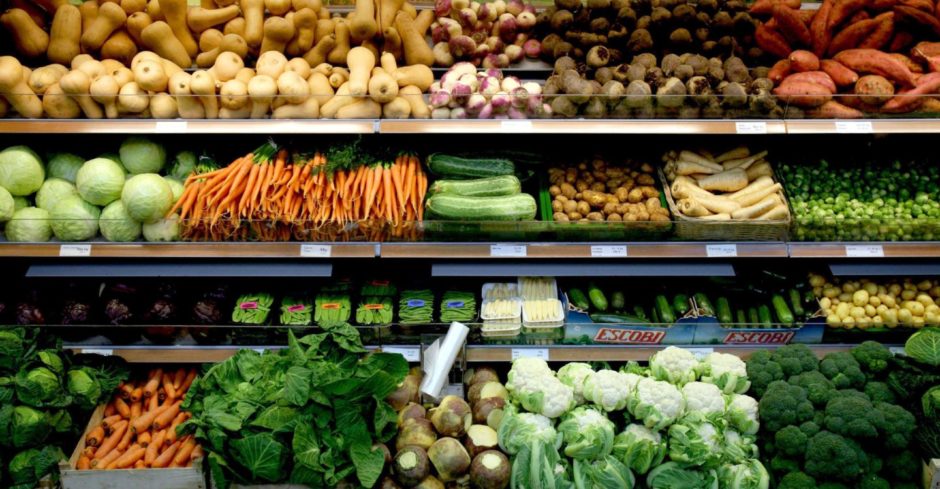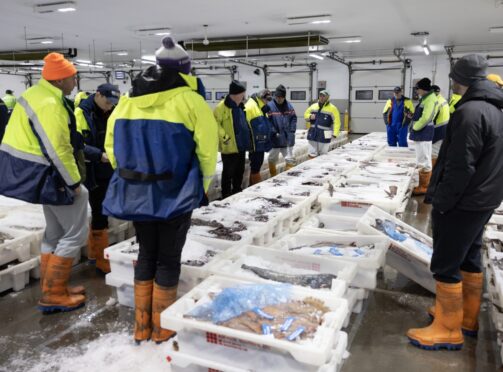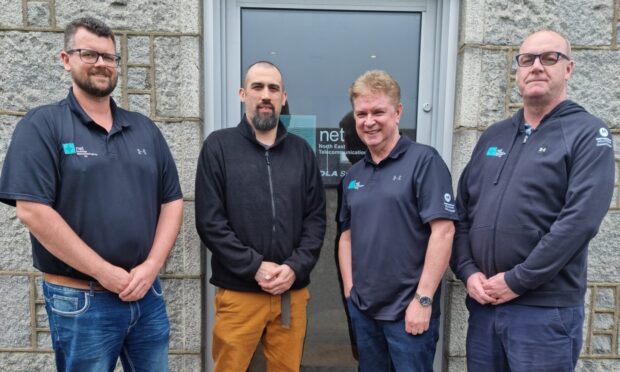Scotland’s rich spirit of entrepreneurship and innovation has been a major linchpin for the country’s economy during the pandemic, with businesses adapting to the crisis as required.
This has not been limited to established firms – across our network, Business Gateway has helped 6,684 new start-ups north of the border, including 2,146 in the north-east since March 2020.
These figures are to be welcomed, considering the unmatched scale of Covid-19. Entire sectors have been shut down, and across the board people and businesses have been fighting for survival.
However, Scotland’s ability to be resilient, innovative, and quickly adopt new ways of working has been nothing short of astounding.
For those interested in starting their own venture, the pandemic has given them the time and motivation to launch.
We look forward to seeing more entrepreneurs making the leap to start out on their own, carve out a business niche and help generate economic recovery.”
While it may seem counterintuitive for people to start a firm during an economic downturn, businesses started in a volatile financial climate are often flexible, agile, and able to withstand difficult market conditions.
Additionally, with some people launching an enterprise through pure necessity and others making the most of the time they have spent at home, entrepreneurs are using the opportunity to develop targeted and specific ideas that have real potential.
Former oil and gas worker’s buttery kits have been a smash hit
Aberdeen firm’s online cocktail lessons are an international success
This is reflected in research we carried out last autumn which showed the national appetite for starting a business has not been hindered by the impact of the virus.
We found 67% of those who participated in the study were at least “seriously considering” striking out on their own within six months, with 49% saying they were “definitely” going to do it.
Among the main reasons were “wanting to be their own boss”, “doing something they enjoy”, and “capitalising on a business opportunity”.
Participants came from a range of industries, including 9% from food and drink, which is particularly impressive considering how the pandemic has severely affected this sector.
According to our analysis of start-up figures in the past financial year, food and drink is in the top five industries of where start-ups emerge.
From April 2020 to April 2021, we have supported 1,121 new firms in Aberdeen city and shire – and 10% of all new businesses were in the food and drink sector, which is a major contributor to the wider north-east economy.
Innovative and adaptable
It has also delivered some of the most exciting innovations, and demonstrated adaptability in how people and their businesses work.
The food production sector is thought to be attractive for start-ups because it is usually an accessible option, with the ability to launch from your kitchen table – providing health and safety requirements are adhered to – and scale up as required.
There is also growing demand from customers seeking local produce and this has further heightened during the pandemic.
Consumers are making long-term changes, including shopping at independent retailers and small businesses.
While there are some distinct advantages to starting up in food and drink, there are key factors to keep in mind that will help ensure a recipe for success for budding business owners.
Firstly, potential entrepreneurs should carry out extensive market research and find out what other firms in the region look like, along with the services and products they offer.
This will help determine who and where your customers are, as well as inform you where efficiency in your operations can be built in.
Achievable targets ‘vital’
Business Gateway’s market reports and research service is a great way to improve your understanding of a given market and provides access to key information on specific areas of business.
Knowing what your capacity is, how much product you can create or deliver, who your suppliers will be and what resources you need is also key because the food-service industry can be particularly labour intensive.
For any new firm, it’s vital to set achievable targets as you build up your brand and awareness.
Finally, a common trend with new ventures is to under-price themselves and their products. We would encourage all new businesses to take an in-depth look at their expenses, costs and profit margins to help make sure this isn’t the case.
For those with the hunger to start an enterprise in the food and drink sector, there is a plethora of resources and support available.
Our advisers across the country can work with business owners to determine whether an idea is viable, identify any gaps and make sure it starts on the strongest footing.
Wealth of support available
Video tutorials, webinars, and online guides are accessible via a Covid-19 business support hub on the Business Gateway website, which also provides guidance for those considering starting up during these challenging times.
Topics covered range from cash flow, planning and restructuring to digital upskilling and diversification, e-commerce and selling online.
Business Gateway works hand-in-hand with the Scottish Government and other agencies, such as Elevator, Scottish Enterprise and local authorities, to ensure firms have sector specific guidance that can support them during this time.
Making the most of digital
Through DigitalBoost, Scotland’s digital upskilling programme, business owners can get support from a consultant, and access advice and tips to ensure their firm gets the most out of online platforms.
While the food and drink sector has been challenged by the pandemic, it’s also led to new ways of working and exciting developments as enterprises learn more about their customers, reach new markets and provide new services.
We look forward to seeing more entrepreneurs making the leap to start out on their own, carve out a business niche and help generate economic recovery.
Kirstie McLaughlin is operations manager for Business Gateway in Aberdeen city and shire














